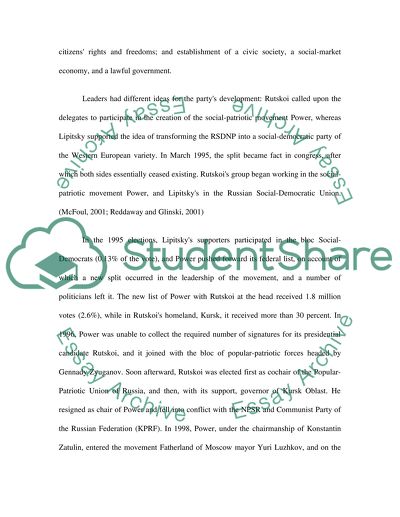Political Science Russian Politics Essay Example | Topics and Well Written Essays - 1250 words. Retrieved from https://studentshare.org/miscellaneous/1502274-political-science-russian-politics
Political Science Russian Politics Essay Example | Topics and Well Written Essays - 1250 Words. https://studentshare.org/miscellaneous/1502274-political-science-russian-politics.


